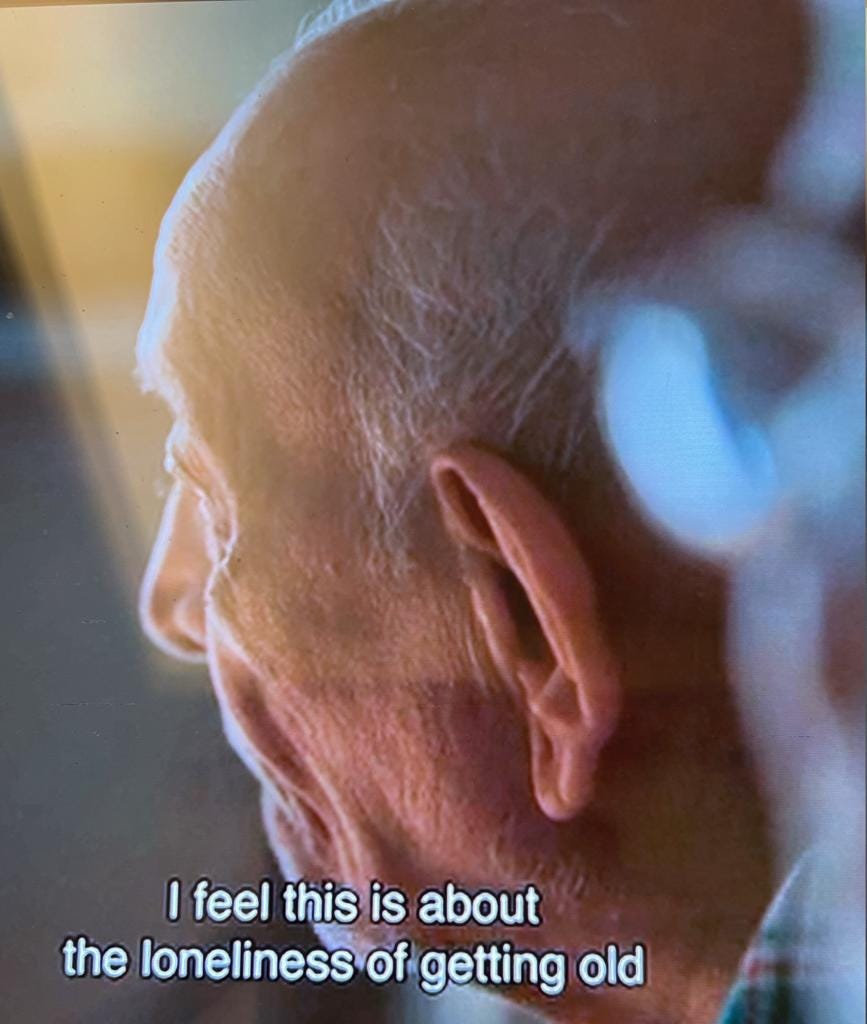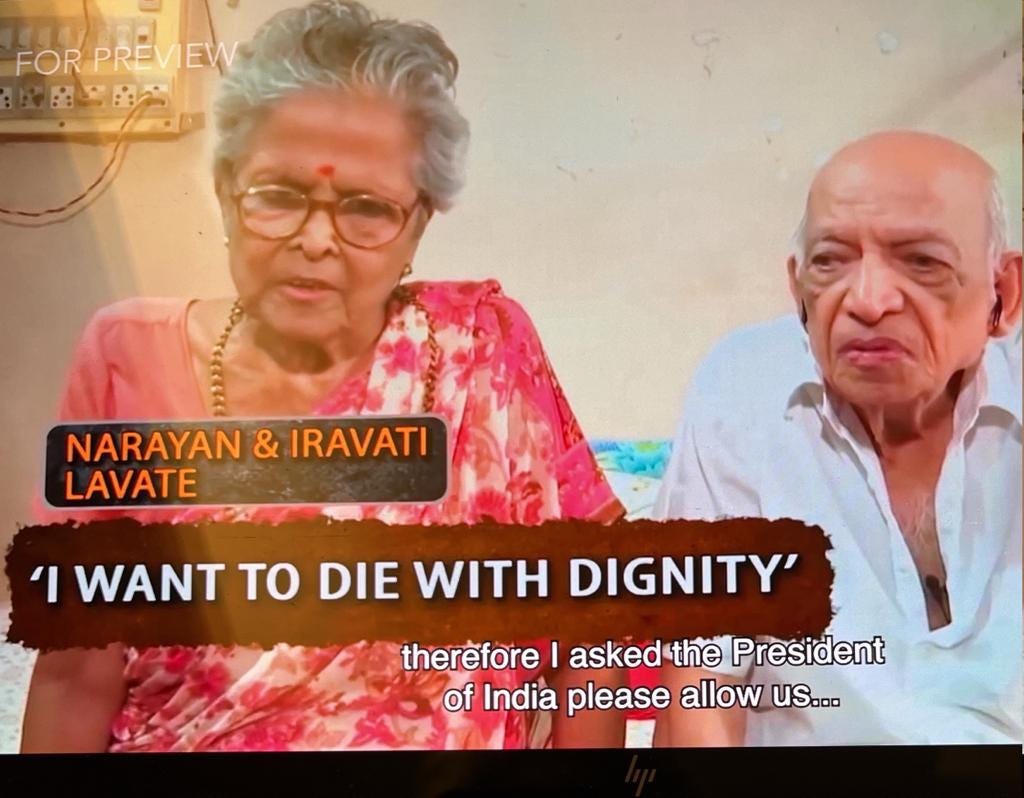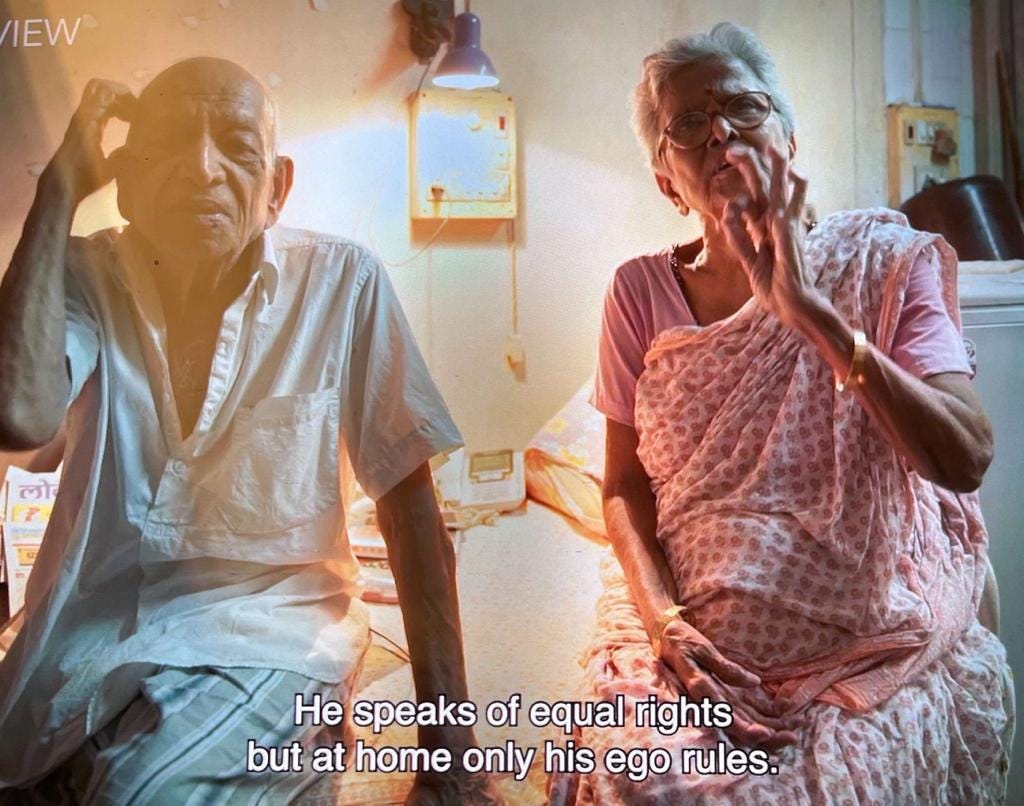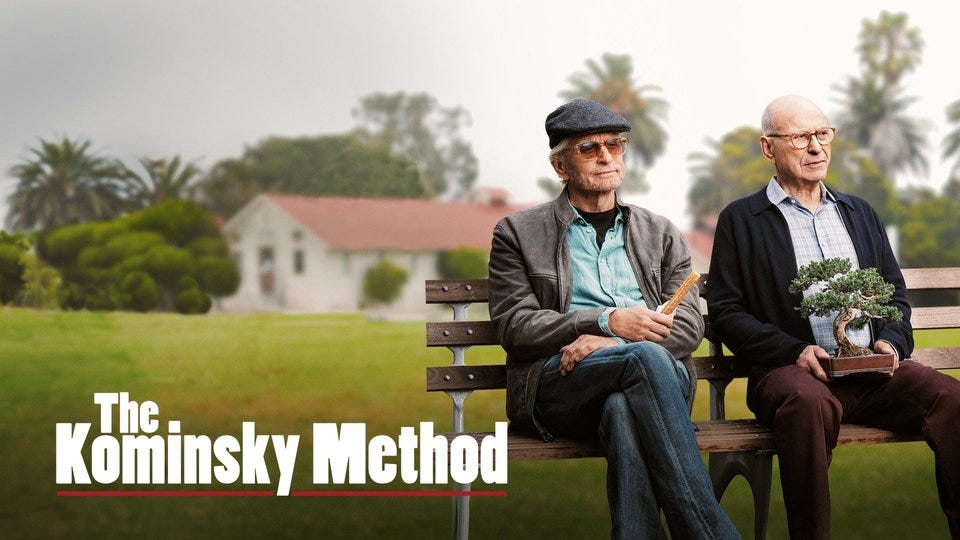Obsolete
The despair of growing old
Yesterday, I wrote a poem called 'Birthday Musings of an Ageing Man', and the first lines were -
“I felt as if another stone was gently kept on my soul.
And today I saw Bhangaar (Obsolete), a slow meditation on the inextricability and despair of old age. An old couple, like so many millions around the world, are alone, slow - and though together, find themselves bereft of purpose, of why they should keep on living.
And strung on the back of that state, that age, that overriding feeling of stuck in a morass of time, which is not of their asking, but a happenstance of life, the couple propositions mercy-killing for themselves, by sending a letter to the President of India. They wish to die with dignity, without waiting for natural death to come to them at its own pace.
Bhangaar, written and directed by Sumira Roy, is a deeply-observed film examining the lives of Iravati and Narayan Lavate, as they live their angularities, memories, chores - and their extreme sense of uselessness.
In its non-judgemental delineation, it seeks to find cogency in these lives which desire death. But instead the film finds, crushingly, ordinary lives living just the kind of lives which we as a populace take for granted as the lot of all the old people in our lives - those who live with us as family or those who we observe in our conscious circles.
I stay with my parents, my father a ripe 91 and my mother a boisterous 87. And I have seen them stumble in their reminiscing, or their cohesion of logic, but have always found them quietly satisfied in their waking hours. My dad often comes and stands by the door of my room, just looking at me, and smiling, and turning away when I look up. Or my mother, the center of the good cheer which prevails in our home, who is forever ready for a new adventure. And I ask them what old age means to them, if they ever wonder about death, and more importantly, do they desire it. And they unequivocally answer - they think of it all the time, but it’s more like thinking of welcoming an old friend, who would embrace them in his warm arms. And no, they don't desire it.
But, as my mum points out - they have us with them, a gracious funny grandchild, and a possible grand-grandchild on the horizon. In the rhythms of life, and its promise of the new, they have something which makes them happily wake up with expectation. Aloneness and loneliness, both, had skirted their lives.
They also mused, warily - don't think you will be as lucky as us. Lavates were certainly not.
The tone is set from the beginning of the film - two crows trying to dismember a dead rat. And it’s not circumstances, but life itself which imprisons them - not with a sense of dread, but ennui, which is often worse in its bland intensity: dread is an active amalgam of chemicals, it shows movement, intensity, degrees, whereas ennui is morass, stillness, drudge.
Both of them are like a habit to each other, and possibly the raison d'etre for surviving life with some semblance of meaning. But habits also get to be cruelly asphyxiating. And the only way the couple can nurture each other is with humour. She says "He still calls me black." And he smiles and says "But her qualities are fair."
And the television is always on. Trying to bring artificial life into their stagnant lives. A quiet real-life non-drama even as the television keeps spewing artificial scenarios of passing excitements. And you can almost feel them looking at time as an insurmountable mountain, and a day as something to trudge through like an interminable journey. Even a simple task like walking on the streets and climbing stairs is a chore, and after a while, painful. Even as a sign outside says ‘Mumbai is upgrading’
The camera is a quiet observer - not commenting, not hiding, but seeing the transitions of shadows and festivals, of youth and childhood. As Iravati sees festive lights burn, the fire reflected in her glasses, one can see the couple's affinity to the terminality of fire - and their sad distance from it.
Pretty statues of Ganesha are out in plastic covers, as they lie to be picked up - for celebration during Ganesh Chaturthi and then the transition to the inevitable immersion - bhashaan - in the holy waters. Almost as an allegory to life itself. And the question arises from the depths of these waters - why isn't man also given the same dignity of termination?
This thoughtful film of choices, then, becomes a heartfelt paean to the inevitability of life and the impossibility of death.
Note:
The film is doing the film festival rounds and was recently screened at IFFI Goa to a full house. Look out for it at a hall near you or on OTT!!
Other meditations on ageing:
A cynical old man acknowledges his birthday very grudgingly
I try hard not to be cynical. But I think that’s my terrible gift to myself. Life had a hand to play (of course!), bringing me people and platitudes in equal measure, to leave me nicely acidic for a lifetime. Not that I don’t fight against my worst instincts, read tomes to learn how to return to a crystal-clear state …
A Meditation on Ageing
In the schemata of life and death, we either drown in living or make unreasonable pacts with death. When the inexorability of expectations meets the grindstone of reality, our senses stop to do rainchecks. However intense our relationship with breath, there are junctures which give us glimpses of how with age, choices dwindle, abilities require real and…
She Held His Hand As He Drifted
She held her father's hand, tendrils, with rivulets to her heart, light, as his unwavering gaze, a giant, but a tender child. She turned to me with wet eyes, and asked me if there was magic, a prayer, a pledge, whether love was what, would stop his gentle drift.







It is largely depressing, but I have seen a few who aren't so despondent. Not happy, but equanimous. Happy to observe, but not happy to do anything else. It is when the young observe them that it turns into a menagerie of hopelessness and despair. But yes, we need to see the lonely ones in our midst. A haunting piece.